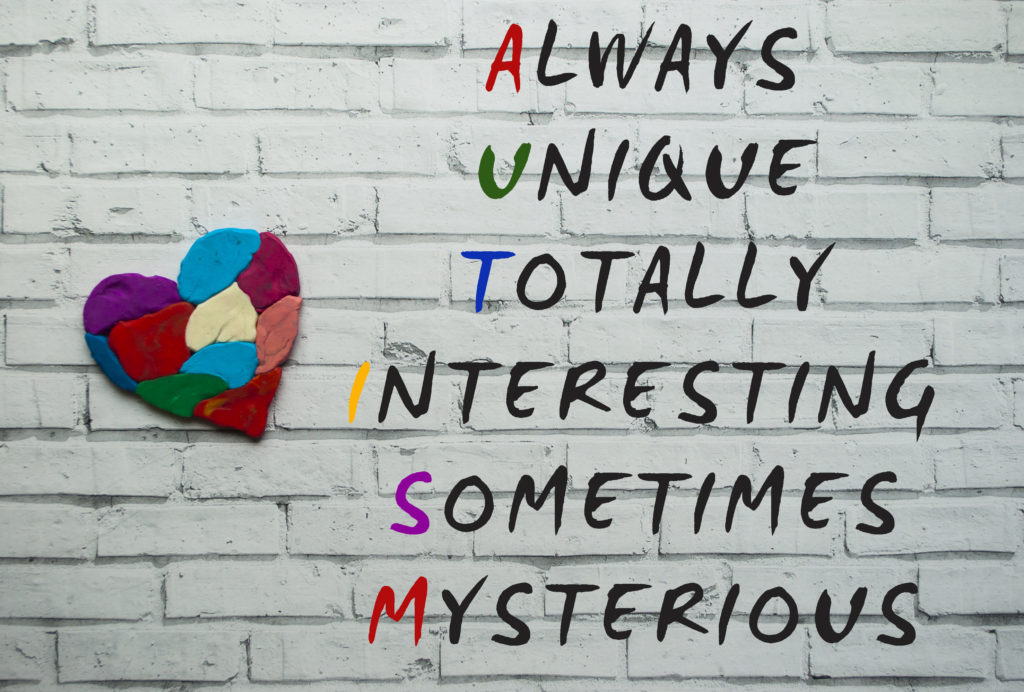
Autism has become a well-known diagnosis in recent years. Though some people seem to be against this sort of labelling, and the general increase in different label of mental conditions, a study out of the University of Portsmouth shows why this is actually a good thing.
What they found is that those who learned they were autistic when they were younger felt happier about their lives. This is probably due to many reasons – generally it is empowering because it clarifies how one is feeling and engages with the world. This enables them to find better ways to deal with this and also explain this to themselves and others. Not only that, but other resources may be available or the understanding of others such as teachers or peers at school.
However, though it is better to be diagnosed, and informed earlier, they also found that receiving a diagnosis in adulthood was also empowering and accompanied by a sense of relief. The takeaway is that getting a diagnosis is important and being informed of this, in a suitable way, of course, is also important.
Of note is that women, who are less often diagnosed, or minority groups, or non-binary individuals, respond more positively to the diagnosis. It also shows that getting a diagnosis (and support) is important to increase life outcomes for those with autism.
Reference:
Tomisin Oredipe, Bella Kofner, Ariana Riccio, Eilidh Cage, Jonathan Vincent, Steven K Kapp, Patrick Dwyer, Kristen Gillespie-Lynch.
Does learning you are autistic at a younger age lead to better adult outcomes? A participatory exploration of the perspectives of autistic university students.
Autism, 2022; 136236132210867
DOI: 10.1177/13623613221086700
More Quick Hits
The Brain Waves That Drive Social Behaviour
Quick HitsDaily brief research updates from the cognitive sciences have reported in other places on the social regions of the brain (for review see here). And this has indeed been the standard approach – try to identify the specific regions in the...
Being Mindful Improves Relationships With Co-Workers
Quick HitsDaily brief research updates from the cognitive sciences he topic of mindfulness has been a hot topic for a number of years now. This is not to be confused with meditation which is often lumped together with mindfulness – because they do...
Engaging Leadership Boosts Employee Engagement, and Team Effectiveness, and Resilience
Quick HitsDaily brief research updates from the cognitive sciences paper just out has looked again at leadership style and impacts on employee engagement and also various team effectiveness measures. Greta Mazzetti of the University of Bologna,...
When Cognitive Games Do Make You Smarter
Quick HitsDaily brief research updates from the cognitive sciences ognitive games have been around for many years now – the first wave of popularity came with Nintendo’s “brain jogging” almost two decades ago now. These games have claimed that they...
How Walking Makes Some People “Super Taskers”
Quick HitsDaily brief research updates from the cognitive sciences hose of you who have followed my writing will know that I have reported regularly on the amazing benefits of exercise and walking on the brain, body, and cognition. However, though...
Older People are Better at Responding to Distress
Quick HitsDaily brief research updates from the cognitive sciences e may have some cliched ideas of older people like the grumpy or angry old man, or woman (but it is often a man). However, research continually shows the opposite. Namely that...
Guided Play Highly Effective for Learning in Children
Quick HitsDaily brief research updates from the cognitive sciences ood news for some and bad news for traditionalists in education. Some believe that starting education early and using classical and traditional learning activities is the best way...
Childhood Fitness Improves Mid-Life Cognition
Quick HitsDaily brief research updates from the cognitive sciences always find these long-term studies fascinating. Imagine launching study and not knowing what the outcomes will be for another 30 years! This is precisely what this study did. It...
The Truth of “Work Hard, Play Hard”
Quick HitsDaily brief research updates from the cognitive sciences e all know the phrase “work hard, play hard” and this drew my attention when I stumbled across some research actually looking into this - and whether this is a good thing or bad...
Coffee Makes Business Teams More Effective
Quick HitsDaily brief research updates from the cognitive sciences just couldn’t resist reviewing this piece of research, from a few years ago, after I stumbled across this (likely because some background algorithm had recommended it to me based...










